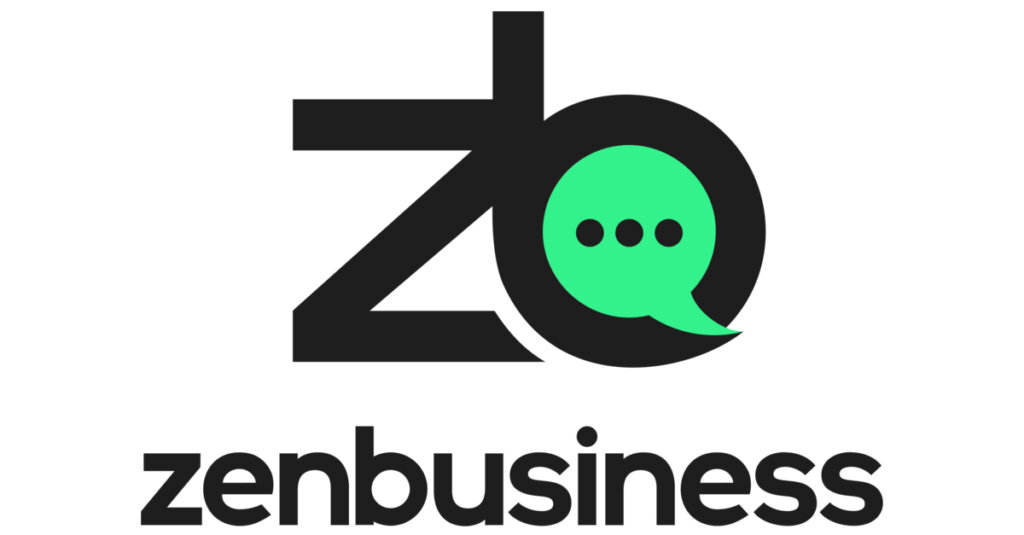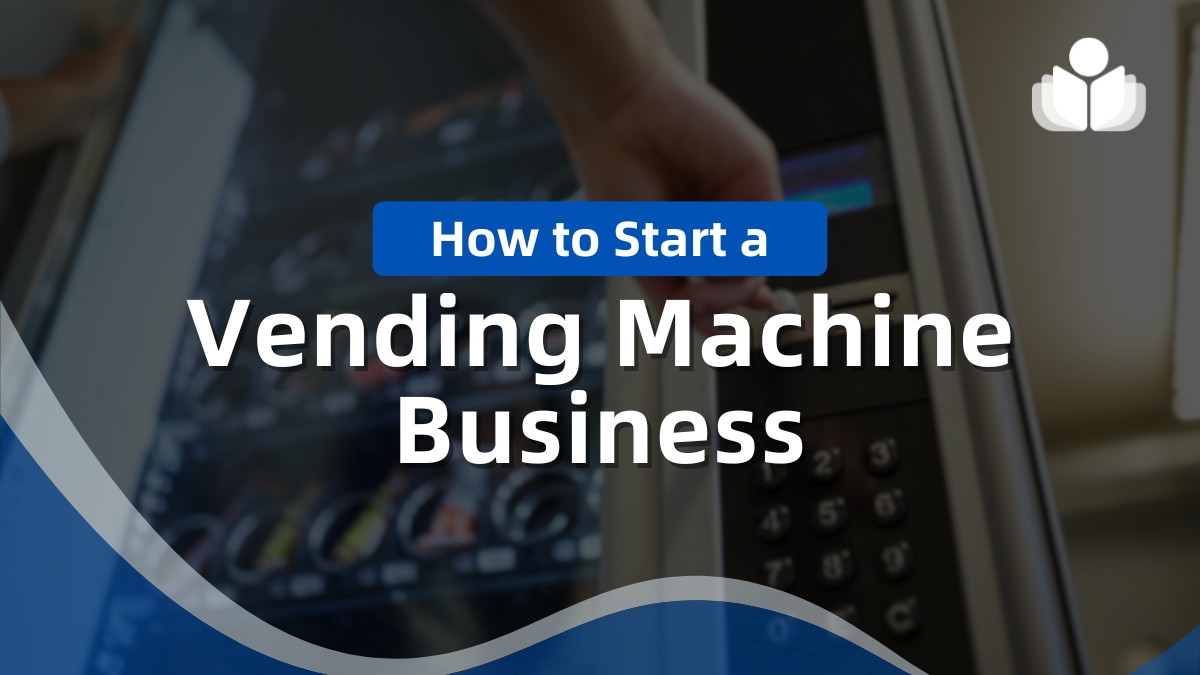Vending machines are common, but they offer appealing opportunities for business ventures. The vending industry in the U.S. alone boasts millions of machines and generated more than $8.6 billion in revenue in 2023.
This industry attracts both newcomers and seasoned entrepreneurs due to its flexibility. Whether as a weekend endeavor, a low-cost startup, or a portfolio expansion, vending machines offer diverse possibilities.
To start a vending machine business, one must choose a lucrative niche, find an optimal location, and secure suitable suppliers. Let’s explore starting a vending machine business.
What Is a Vending Machine Business?
A vending machine company operates machines that distribute various items, primarily snacks and drinks. The owner chooses locations and products and collects money from customers. Vending machines offer a variety of goods, including:
- Selling food items like candy, chips, and snacks
- Offering beverages such as soda, water, and hot drinks
- Providing tech products like chargers, tablets, and earphones
- Retailing cigarettes
- Selling lottery tickets
Many schools and workplaces have vending machines stocked with common items like keyboards and mice. Others offer snacks like gumballs or food for a quick treat. You can begin a vending machine enterprise with various products, even live crabs or caviar, all fitting within a rectangular container.
>> Start Using Tailor Brands >>
Pros and Cons of Starting a Vending Machine Business
Pros of a Vending Machine Business
- Passive Income: Vending machines, once established, generate revenue with little daily effort, making them an appealing source of passive income.
- Scalability: Operators can begin with a few machines and grow gradually by adding more machines in different locations.
- Flexibility: This business model provides flexibility concerning scale, location, and the products sold.
- Low Overhead Costs: Vending machine businesses usually have lower overhead costs than traditional retail businesses due to the lack of staff requirements and low maintenance costs.
Cons of a Vending Machine Business
- Upfront Investment: Acquiring or renting machines and securing locations can require a considerable upfront investment.
- Vandalism and Theft: Vending machines, particularly in less secure areas, face the risk of vandalism and theft.
- Maintenance Challenges: Keeping machines operational and stocked can pose logistical challenges, especially when they are spread out.
- Competition and Location Dependency: Achieving success hinges on obtaining prime locations, which are both scarce and fiercely contested.
>> Start a Vending Machine Business With Tailor Brands >>
Before You Get Started: Choose Your Business Structure
Starting a vending machine business: acquiring a few vending machines is crucial. You must establish an LLC or corporation to expand your business, comply with tax regulations, and manage profits. Ensure you obtain the business license for vending operations in your area.
Once licensing requirements are clarified, organize your paperwork and smoothly launch your business. For LLC registration help, reputable companies offer reliable services, as listed below.

Tailor Brands provides an online service for registering businesses, offering a straightforward platform where entrepreneurs can swiftly and effortlessly register their businesses. The service offers a clear, step-by-step process, helping users navigate through the legal obligations and required documentation to establish their business as an independent legal entity.

ZenBusiness is an excellent choice for registering your business due to its quick filing options and affordable incorporation fees. Their customer support team is available to assist with inquiries throughout the process, although they cannot provide legal advice.
Once your business is up and running, ZenBusiness offers tools to simplify management tasks. They can assist with tax paperwork and act as a registered agent, alleviating some business burdens.

Northwest Registered Agent stands out as a business registration service for its commitment to transparency and personalized customer care. They openly share pricing details and prioritize efficient, user-friendly support to ensure accurate results from the start.
How to Start a Vending Machine Business: A Step-By-Step Guide
Starting a vending machine business and making money doesn’t require prior industry experience or connections. Here’s a guide on how to begin a vending machine business in seven simple steps.
1. Figure Out What to Sell in Your Vending Machine
To determine what items to include in your vending machine, first, identify your target location and demographic. Will you place a vending machine in a corporate office or a school cafeteria? What products would these customers likely require from a vending machine?
Office workers might prefer a vending machine that offers beverages like energy drinks or coffee. Conversely, college students may prefer a vending machine stocked with snacks or quick meals between classes.
Then, identify products with sufficient demand and high-profit margins. For instance, stocking an ice vending machine incurs minimal costs. However, such machines may experience lower traffic than those selling beverages or food. Select items that balance high margins and high demand.
2. Research and Find an Ideal Location
Consider your target audience when selecting a suitable location. For instance, if your customers are college students, locate your business on campus. Now, determine the precise spot, such as a dormitory versus a student center. Ask yourself these questions as you decide on the exact location:
- How many individuals pass by this spot?
- Is this spot mostly outdoors or indoors? What’s the weather condition, like chilly or warm?
- Are there existing vending machines here? What are they vending? Are they old or new?
- Who oversees or possesses this spot? Would they probably allow installing a vending machine?
Compile a list of various locations. Subsequently, locate the owners’ contact details and arrange meetings by phone. Dress appropriately, carry materials about your vending machine concept, and respond to inquiries.
As previously mentioned, anticipate allocating 5%-25% of your total earnings to the property owner. Use this range as a reference point to negotiate the portion of your profits you can offer them.
3. Pick an Optimal Machine
Francis advises that selecting the vending machine hinges on your budget and the merchandise you plan to offer.
If you aim to sell drinks and snacks, you’ll need a machine capable of accommodating both. More advanced models, like those for brewing coffee, necessitate specialized equipment.
Weighing the advantages and disadvantages of purchasing new versus used machines is crucial. While new machines typically entail higher costs, they demand less maintenance and often boast more advanced features. Conversely, older machines are more economical upfront but might incur higher maintenance expenses.
According to Francis, opting for a new machine ensures it comes equipped with a credit card reader, warranty, and provides peace of mind regarding potential issues.
Types of vending machines encompass:
- Beverages
- Quick Bites
- Mixed Options
- Both warm and cold meals (like hamburgers and fries, ice cream)
- Coffee Selection
- Products for Sale (such as headphones, facial coverings)
Consider whether to invest in a machine that can process electronic payments. With more customers preferring digital transactions and declining coin usage, opting for a pricier machine capable of accepting card or mobile payments may be worthwhile.
Retail giants like Sam’s Club and Amazon also offer new vending machines. Alternatively, you can explore platforms like Facebook Marketplace, eBay, or OfferUp for used ones.
Before finalizing a purchase, thoroughly review the machine’s specifications, reviews, warranty, and other relevant details. For used machines, assess the seller’s reputation and address any inquiries you have about the machine’s condition.
4. Sign Any Permits or Applications Needed for the Business
Each city imposes unique regulations on vending machines. However, to begin, you’ll probably require some of these permits:
- License for selling beverages
- License for providing food services
- Inspection for health compliance
You must obtain additional licenses and permits required for operating any business. These include gaining a seller’s permit, state or federal licenses, registering your business name, and applying for an Employer Identification Number (EIN).
Also, remember that you will need to file taxes for your vending machine business.
5. Stock the Machine
You understand your machine’s needs, so now you must find a supplier. Purchasing in large quantities is the most effective method to cut costs and maintain high profits. For discounted rates, many operators use membership clubs like Costco, Sam’s Club, and BJ’s. Another option is to buy directly from wholesalers like General Mills and Kind Snacks, but shipping fees may apply.
6. Conduct Regular Maintenance, Repairs, and Restock
When starting out, check the vending machine at least once a week. This helps you track product sales, restock when necessary, and address any machine issues promptly.
Once you grasp the machine’s pattern, you can adapt your schedule. For instance, if it typically runs out of products every two weeks, plan restocking accordingly.
7. Review and Optimize Your Operations
After setting up your machine, consistently assess it to improve your operations. This involves making periodic adjustments to maximize efficiency. When evaluating your machine’s performance and planning for growth, explore these cost-saving approaches:
- Buying a pre-owned or classic vending machine (such as gumball dispensers)
- Haggling for a reduced fee with the premises’ owner
- Collaborating with a vending machine advisor to secure discounted rates from suppliers
- Acquiring inexpensive products for the vending machine (like water, sweets)
Three Startup Options
No matter which approach you select, it’s essential to consult with a lawyer for legal concerns and an accountant or tax advisor for financial and tax issues. The expenses for starting a vending machine business can fluctuate significantly. Your entry strategy, the quantity and kinds of vending machines, and your chosen products will all influence your initial and ongoing expenditures.
1. Buy an Existing Vending Machine Business
Purchasing a pre-existing vending machine business or route offers a quick entry into the industry. It provides immediate access to customer accounts and a reliable income. Before deciding, it’s essential to conduct thorough research.
Determine the reasons behind the owner’s desire to sell and assess all facets of the business for potential problems. This includes inspecting machine functionality, reviewing client and vendor contracts, and examining financial records.
2. Buy a Vending Machine Franchise
Franchise opportunities offer a ready-made business plan for launching a vending machine business successfully. Investing in a vending machine franchise enables individuals to begin a business with pre-existing administrative and operational systems in position.
Leading vending machine franchise opportunities consist of:
- Clothing Bin
- Fresh Healthy Vending
- Power Drop Shop
- Reis & Irvy’s
- Xpresso Delight
- Healthy Cravings
- IceBorn
- Naturals2Go
- Pharmabox
Remember that franchise expenses and support levels differ among options. Typically, there’s an initial franchise fee to join, followed by the franchisor receiving a portion of your profits or imposing a monthly fee. Review the franchise agreement thoroughly to identify any excessive limitations (like where you purchase equipment and goods).
Ensure you grasp your obligations for running your franchise under the franchisor’s regulations (e.g., do you need to establish a legal business entity, such as an LLC or corporation?).
3. Start Your Own Vending Machine Business
Opting for this choice requires the most effort, but it offers the flexibility to create a vending machine business tailored to your preferences. Starting from the beginning entails buying machines and finding suitable locations independently. Since this option involves extensive work and factors to consider, let’s explore the fundamental steps to execute it effectively.
>> Get Your Vending Machine Business Started With Tailor Brands >>
What’s the Market Like for Vending Machine Businesses?
Small players, with millions of independent owners, prevail in the vending machine industry. No single company controls over 5% of the market, creating opportunities for small-scale ventures. Despite revenue declines during the pandemic, the vending machine market has bounced back, showing a growth rate of 16.7% annually.
Are Vending Machines Profitable?
Vending machines typically earn about $35 per week on average. However, how much you make depends on where you place the machine and what you sell. Operators buy products in bulk and sell them at a higher price in the machines, sometimes making as much as 86% profit on items like water.
The location affects the machine’s success. A machine on a busy boardwalk usually makes more sales than one in a partly filled office building.
According to vending machine consultant Lakinya Francis, sometimes, a machine can pay for itself in just six months if it’s in the right spot.
The type of machine you choose also affects profits. Bulk vending machines, which sell cheap items like toys or gumballs, tend to have the highest profit margins and lowest costs. They’re cheaper to buy and stock (e.g., $35 for 800 gumballs).
More advanced machines, like those selling beauty products, can bring in more money but have higher startup and upkeep expenses.
How Much Does a Vending Machine Cost?
Vending machines vary in price, ranging from a few hundred dollars to $10,000, based on their quality and brand. Modern, high-tech machines are pricier compared to conventional ones. Despite this, vending machines have lower startup expenses than other business ideas.
Operators also face additional costs that can impact profits, such as:
- Insurance: $500 per year for annual sales exceeding $100,000
- Location-based commissions: Ranging from 5% to 25% of revenue
- Credit card fees: Approximately 5% to 6%
- Taxes: 10% to 37% of adjusted gross income
- Maintenance: Costs between $50 and $250 annually
When a business earns $5,000 monthly, it can expect around $2,000 in profit.
>> Check Out the Best Pricing for Tailor Brands >>
How to Purchase Vending Machines
To maximize flexibility in launching your business, consider purchasing your vending machines and finding locations independently. If you’re prepared to use your connections in commercial spaces, this approach offers the most autonomy.
Alternatively, you can gain an existing set of vending machines. Before proceeding, gather information on why the current owner is selling. Retirement is an ideal reason, but be wary of potential location issues.
Opting for a franchise provides a ready-made business model with fewer initial decisions. However, be aware that franchisors receive a portion of the profits from franchisees.
Repairs and Maintenance
Because vending machines are placed in public areas, they are vulnerable to vandalism and occasional theft. Incorporating this into your business strategy is essential, despite its challenges.
Even if you purchased brand new vending machines rather than secondhand, they still need routine inspections for assurance. Any downtime your vending machine experiences translates to missed revenue. Integrating regular machine checkups into your schedule will ultimately boost profits.
>> Start a Vending Machine Business With Tailor Brands >>
The Top Vending Machine Companies in the U.S
Vending machines have been well-liked in the United States for quite some time. At first, makers used vending machines to sell their goods directly to consumers. Gradually, individuals and bigger corporations entered the field. Before launching your vending machine venture, it’s crucial to know about the major players in the industry. Among them are some of the largest vending companies in the United States.
- Crane Merchandising Systems: Offering a range of vending machines and technologies, including snack and drink machines. With a vast network of distributors and service partners nationwide, these machines are present in offices, schools, hospitals, and public spaces, generating approximately $200 million in annual revenues.
- Royal Vendors: Certified by Coke, Pepsi, and Dr. Pepper, it’s one of the three soda vending manufacturers. Their vending machines include electronic, touch-screen, and smart options with cashless payment, earning over $60 million annually.
- Selective: Operating for over 50 years, this U.S.-based company manufactures vending machines for snacks, drinks, and personal care items. Renowned for its innovative technologies like high-security and cashless payment systems.
- Canteen: Part of Compass Group, it’s one of the nation’s largest vending machine companies, serving businesses, schools, and government entities.
>> Get Started With Tailor Brands >>
How to Start a Vending Machine Business – FAQs
Bottom Line
Embarking on a vending machine business brings both opportunities and obstacles. It provides a flexible, scalable model for entering entrepreneurship and earning passive income. Success hinges on thorough planning and action, selecting suitable machines and items, securing prime spots, and staying proactive in maintenance.
Though initial costs and security risks may worry, the minimal overhead and potential for growth through strategic placement in busy areas offer promising returns. Adapting to evolving consumer tastes and technology is crucial for staying competitive and profitable.
 Sections of this topic
Sections of this topic
















